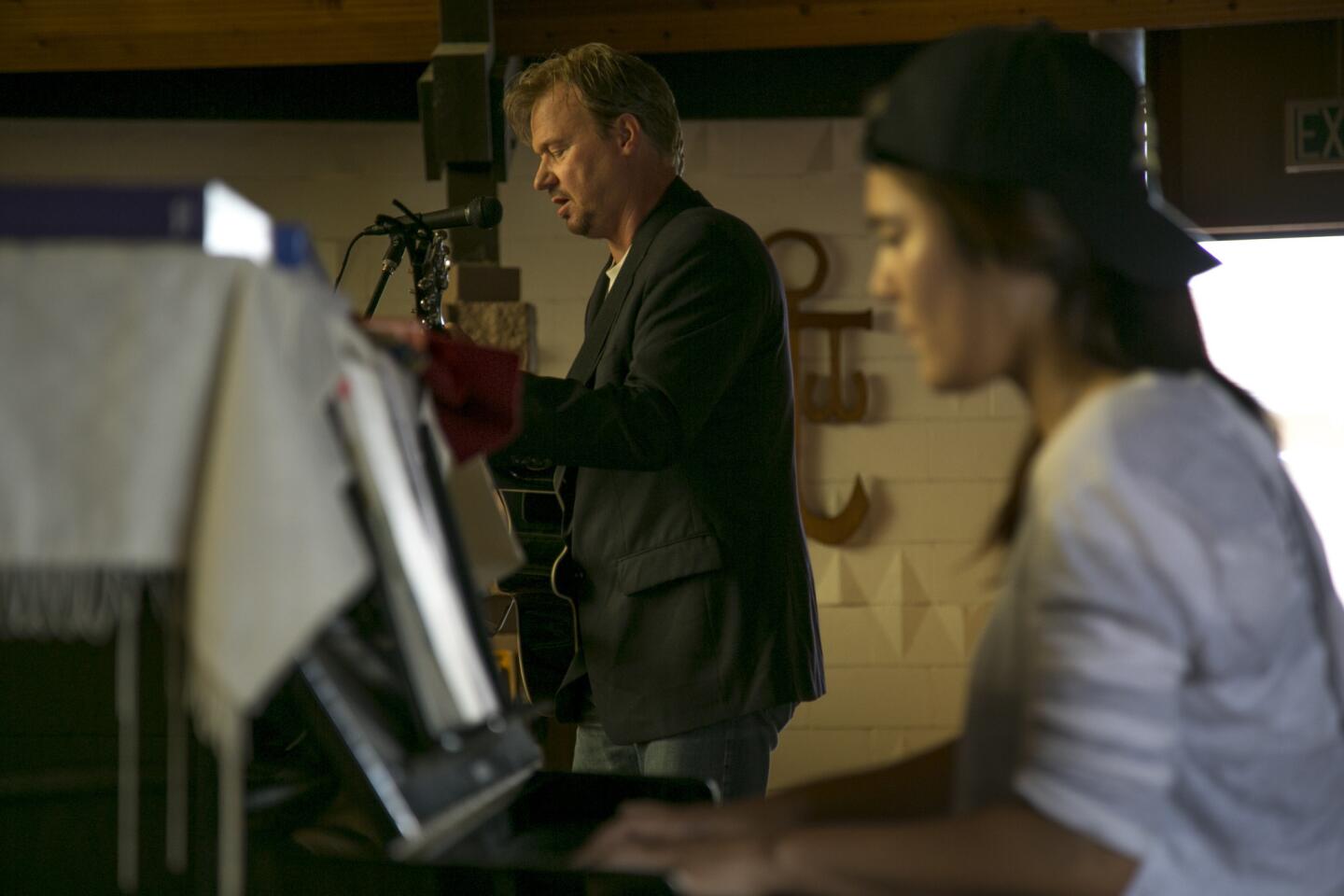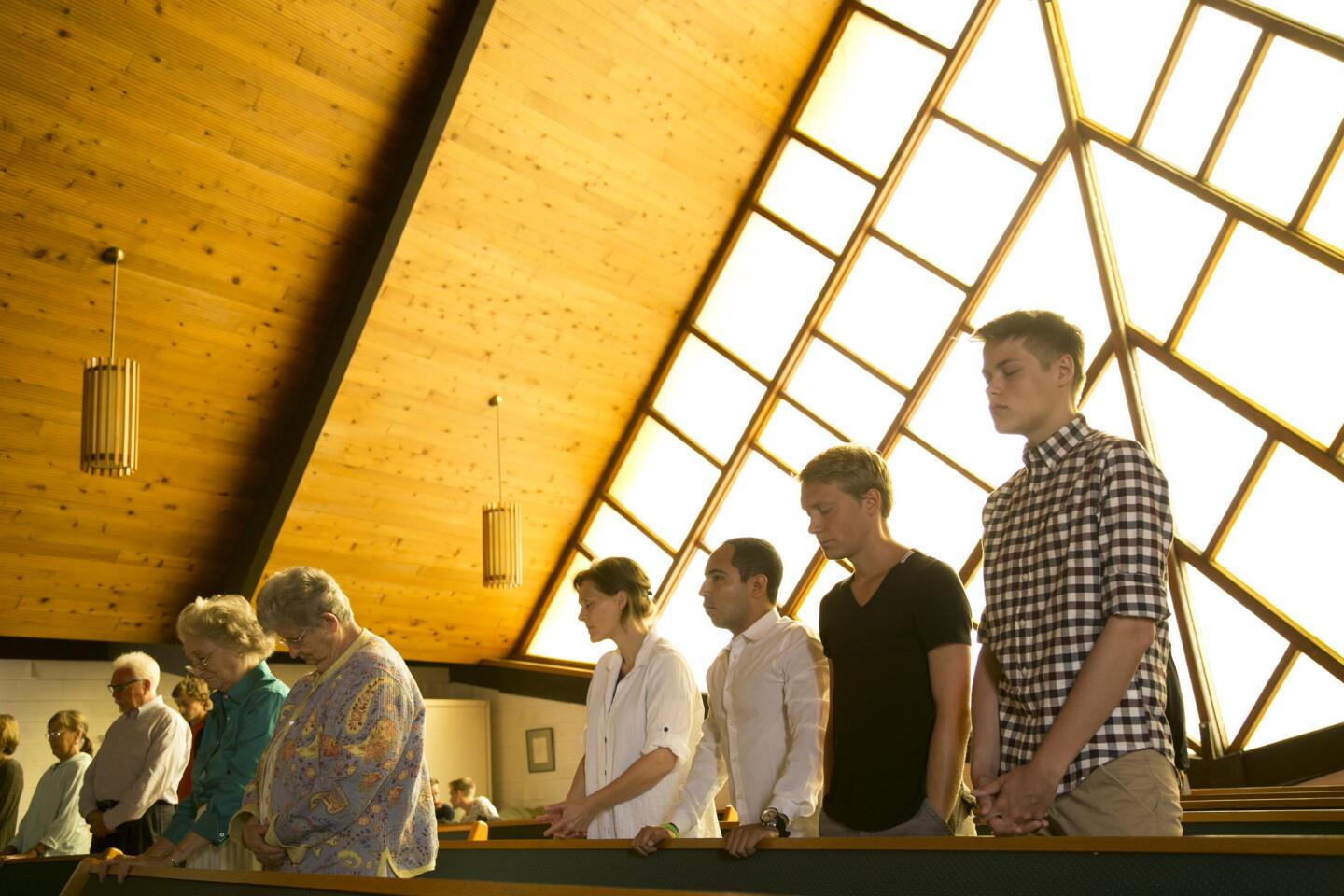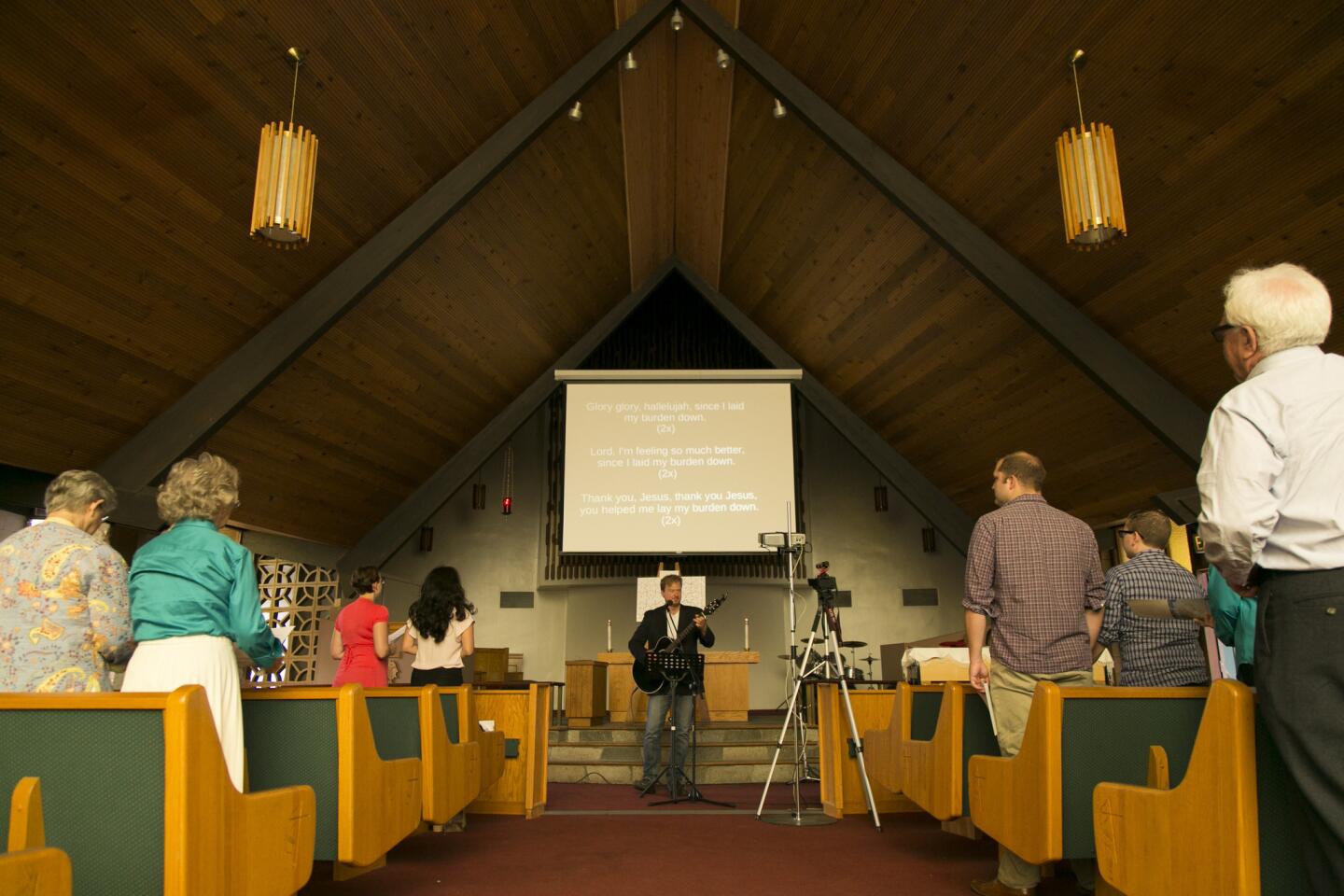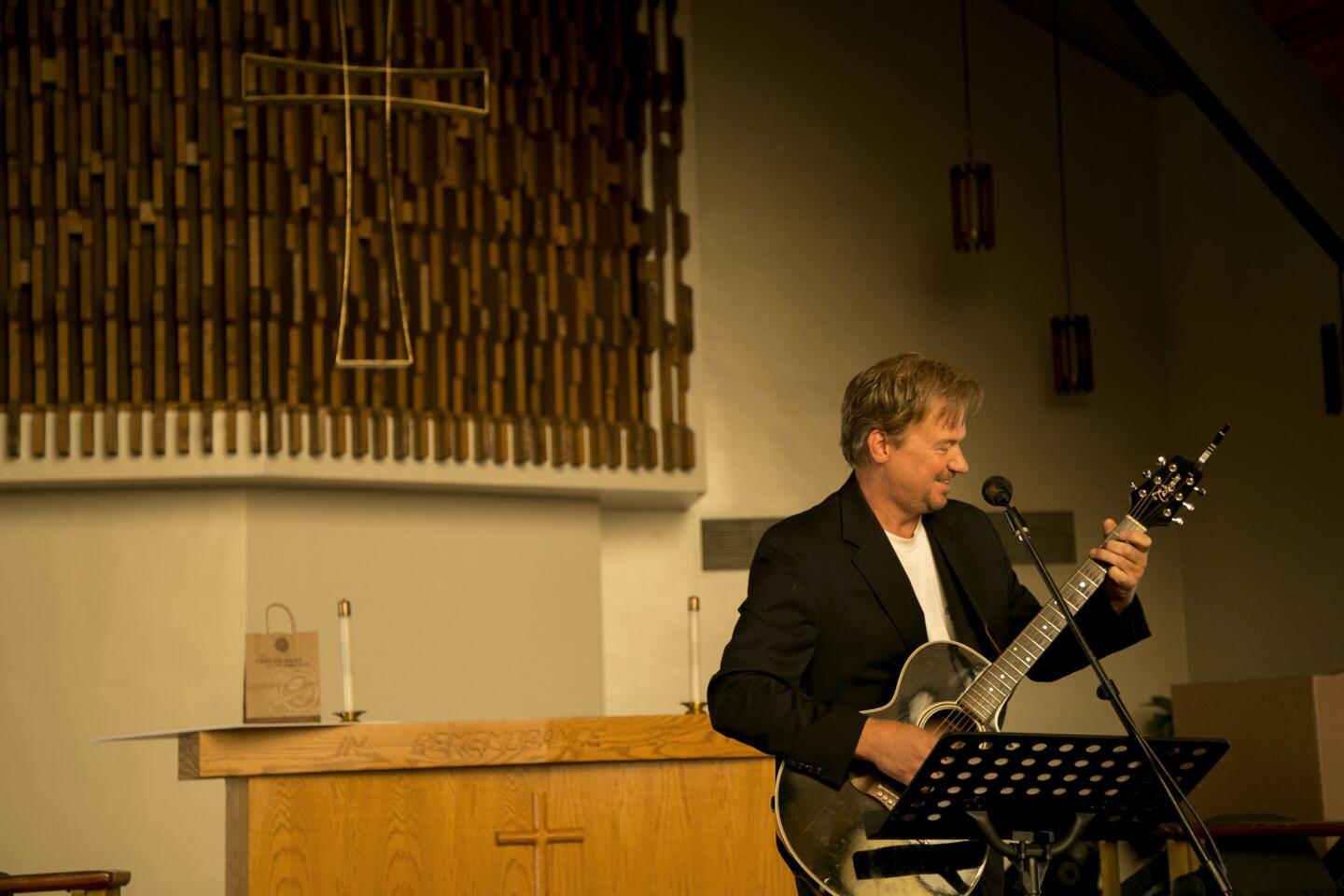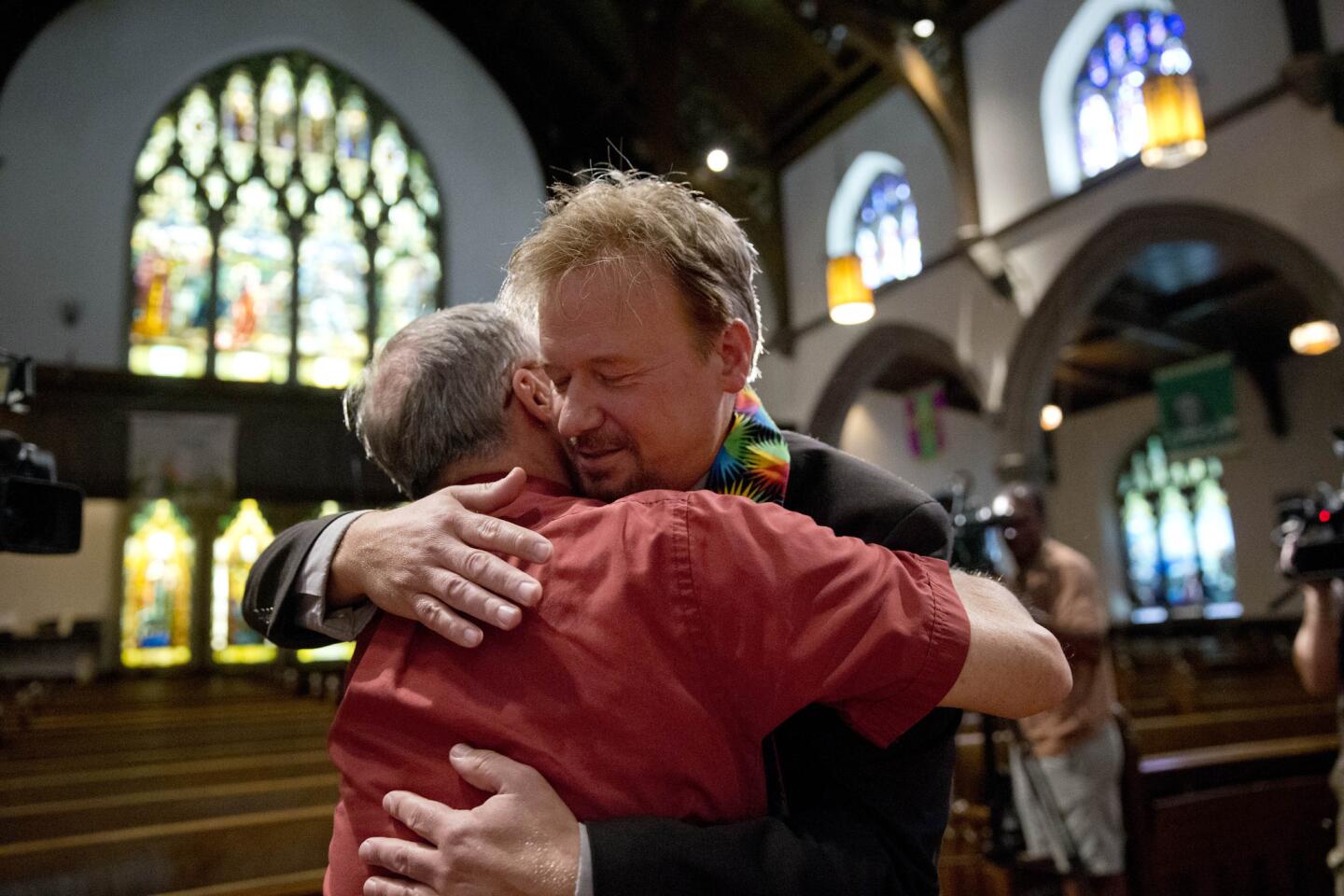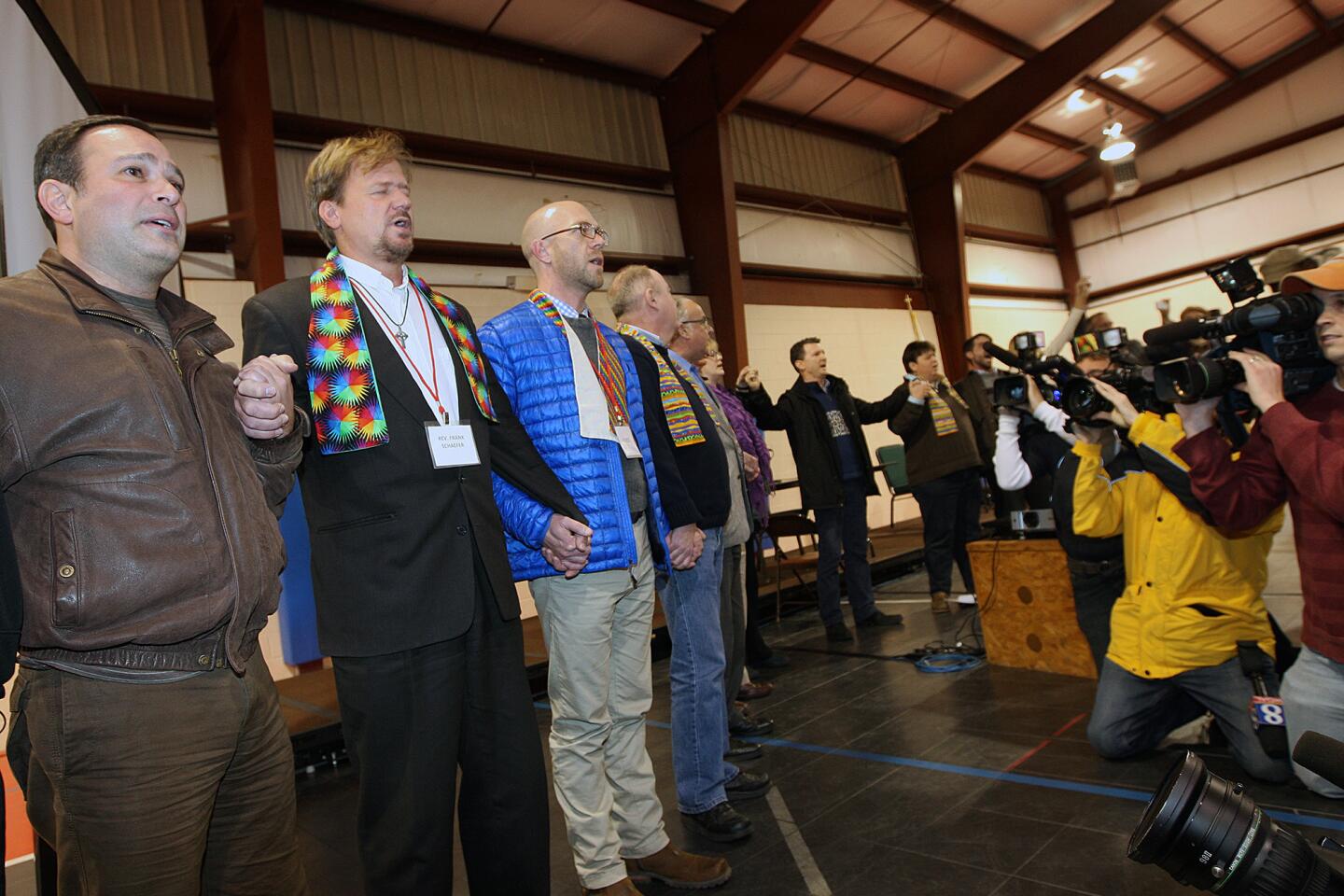Great Read: Defrocked pastor defends gay rights at new pulpit
The pastor walked the streets of Lower Manhattan, his hands trembling. A day earlier, he’d been stripped of his ministry, defrocked by the United Methodist Church for presiding over his gay son’s wedding. He was afraid he’d never lead a church again.
Then his cellphone rang. A woman he’d never spoken with was on the other end: Bishop Minerva Carcaño, the liberal-leaning head of more than 350 Methodist churches from Southern California to Saipan.
“Brother Schaefer,” she said, “you have support here on the West Coast. You have a community that welcomes you. You acted in the spirit of Jesus, and we invite you to come minister here.”
Schaefer and Carcaño both recall weeping as they spoke that December day. As far as she was concerned, even if he were no longer ordained, he could still preach. She vowed to find him a congregation in California.
Being a Methodist pastor was the core of Frank Schaefer’s identity. He couldn’t imagine himself any other way.
“Bishop, you made not just my day,” he said. “You made my life.”
::
Schaefer, 52, was born in Germany to conservative parents who brought him up in the world of evangelical Christianity. The Bible was read literally. The view on homosexuality was unchallenged: It was a sin worthy of hellfire.
But he struggled in his 20s to resolve strict interpretations of Scripture with what he’d learned about reason and science. So he moved to America, eventually converting to Methodism and studying for the ministry at Princeton — where he arrived at a theology that focused on social justice and placed the Bible in context with modern times.
“I became a theistic evolutionist,” he said. “The belief that God used the process of evolution to bring about the world God intended. And naturally, my beliefs about sexuality — those changed too.”
He ended up in Lebanon, Pa., a town of about 25,000, where he ministered at two churches, ending with Zion United Methodist of Iona, with roughly 200 congregants.
Schaefer wasn’t flashy, said Clydette Overturf, his former associate pastor. Just caring, well-versed in the Bible and open to new ideas. His services were youthful, contemporary. Attendance on Sundays swelled.
“It felt like leading a church was simply what he was meant to do,” Overturf said. “Being a minister is his great gift.”
For years Schaefer said nothing about gay rights, preferring to skirt the issue by emphasizing broad religious tolerance. “I was a quiet supporter, hardly what you would call an advocate,” said the pastor, who has sharp blue eyes, a tousle of blond hair and a self-effacing manner. “It’s nothing I am proud of.”
“He was afraid, and had every reason to be,” Overturf said. “We are in one of the most homophobic counties in the country.”
::
When Schaefer’s eldest child confided as a high schooler that he was gay, the pastor and his wife were shocked.
They took pains to offer support, but Schaefer admits it wasn’t easy. He wondered whether something about his parenting had made Tim gay. He also feared for his son’s life. It was 2000; gay college student Matthew Shepard had been murdered two years earlier in rural Wyoming.
Then there was Schaefer’s job.
“I was afraid if this got out, I would be dropped as pastor right away,” he said during a recent interview.
And yet a few years later, Schaefer didn’t pause when Tim was about to get married and asked his father to preside.
“We both knew the rule against Methodist clergy officiating marriages like mine,” said Tim, now 30 and a retail manager. “He absolutely wanted to do it. Blessing a child’s wedding is a dream come true for most pastors.”
Schaefer had felt a special bond with Tim since the day he was born — six weeks premature, struggling to breathe, his blood poisoned in the womb. A doctor had pulled Schaefer aside and said the baby might die.
“I prayed and prayed for God to keep that child alive,” he remembered. The pastor had prided himself on being there for his son; he wasn’t about to change because of a church rule he’d come to regard as discriminatory.
Schaefer didn’t tell his parishioners about the wedding, though he says he informed his superior in the regional Methodist hierarchy. The ceremony was held in 2007 at a seafood restaurant near Boston.
“A year went by,” Tim said. “My dad and I talked about it, wondering who knew.”
More time passed. “We thought nobody would find out,” Schaefer said. “And if anybody had found out, we figured they weren’t bothered.”
But a group of church members had been unhappy with Schaefer.
Christina Watson recalled asking the pastor for guidance on the church’s Book of Discipline, akin to a constitution carefully laying out the denomination’s theology and doctrine.
“He said, ‘It is not a set of rules,’” recalled Watson, once the church’s Christian education coordinator. “He seemed to believe, ‘I am a Methodist minister, but I don’t want to live the Methodist way.’”
A few of the critics accused him of sexual and financial misconduct, allegations that were investigated by Methodist hierarchy and quickly proved unfounded. Finally, one critic tracked the Massachusetts marriage license down.
A complaint was filed, accusing Schaefer of violating Methodist law, and the stage was set for a church trial at a camp about 30 miles west of Philadelphia.
On the trial’s last day, having been found guilty and waiting to hear the penalty, Schaefer cast aside a statement crafted in hopes of minimizing his punishment. He thought not only of Tim, but of two of his other children, Debbie and Kevin, who had also come out as gay. He decided to speak from the heart:
“Before you make a decision, please know … my message is going to be that we as a church and as individuals need to stop judging people based on their sexual orientation or anything else,” he said. “We have to stop harming beloved children of God. We have to reach out to them and treat them as Jesus would have treated them. That’s going to be my message.”
Asked to reconsider, he refused. The church revoked his ministerial license.
::
Over the next six months, Schaefer would become a potent symbol of the debate over the acceptance of homosexuality within mainline Christianity — and the latest in a growing line of Methodist pastors who’ve risked their livelihoods by advocating for gay rights.
Carcaño’s surprise phone call to Schaefer had come after a morning in New York filled with nationally broadcast interviews. Telling his story was now part of his calling. He finished a book, titled “Defrocked.” His weekends were filled with speaking engagements at churches in cities such as Atlanta, Washington and Dallas — where he took to the pulpit at the Cathedral of Hope, which bills itself as the largest gay church in the world.
“He was a rock star at our church,” said pastor Jim Mitulski, recalling standing ovations as Schaefer preached to pews packed with nearly 1,000 parishioners. “Gay liberation needs straight allies, and when you speak of those allies, he is now among the strongest.”
But to Schaefer, something vital was missing: He had no flock.
For a while he fielded offers from denominations that embraced the gay community and hewed to his emphasis on social justice. But he couldn’t leave the Methodist Church behind. He felt too much kinship with the tenets of its founder, John Wesley, who in the 1700s emphasized mixing scripture with reason, experience and tradition.
It would be best, he figured, to fight from within.
Carcaño made good on her vow to find Schaefer a church, a promise easier to keep once a Methodist panel reversed course, voting in June to reinstate his ordination. (An appeal of that decision will be considered by the church’s highest judicial board in October.)
The pastor and his wife, Brigitte, sold their home, packed their belongings into a rental van and drove across the country for a new beginning.
It wasn’t much, but a few blocks from the UC Santa Barbara campus, there was a chapel needing a pastor.
University Church in Isla Vista, also known as Korean United Methodist, was essentially defunct, its house of worship weed-choked, water-damaged, dingy.
“We’re basically starting from scratch,” Schaefer said. “It’s scary and exciting, all at the same time.”
The first service was on a recent Sunday, the angular chapel full of echoes and dust. Only eight people — including Brigitte, Debbie and Kevin and another son, Pascal — occupied pews capable of seating 170.
Schaefer strode confidently before them, imagining the future, a full house. He took a deep breath and began his sermon, preaching about Tim and the trial, love and inclusion to a church that he could once again call his own.
Twitter: @kurtstreeter
More to Read
Sign up for Essential California
The most important California stories and recommendations in your inbox every morning.
You may occasionally receive promotional content from the Los Angeles Times.
